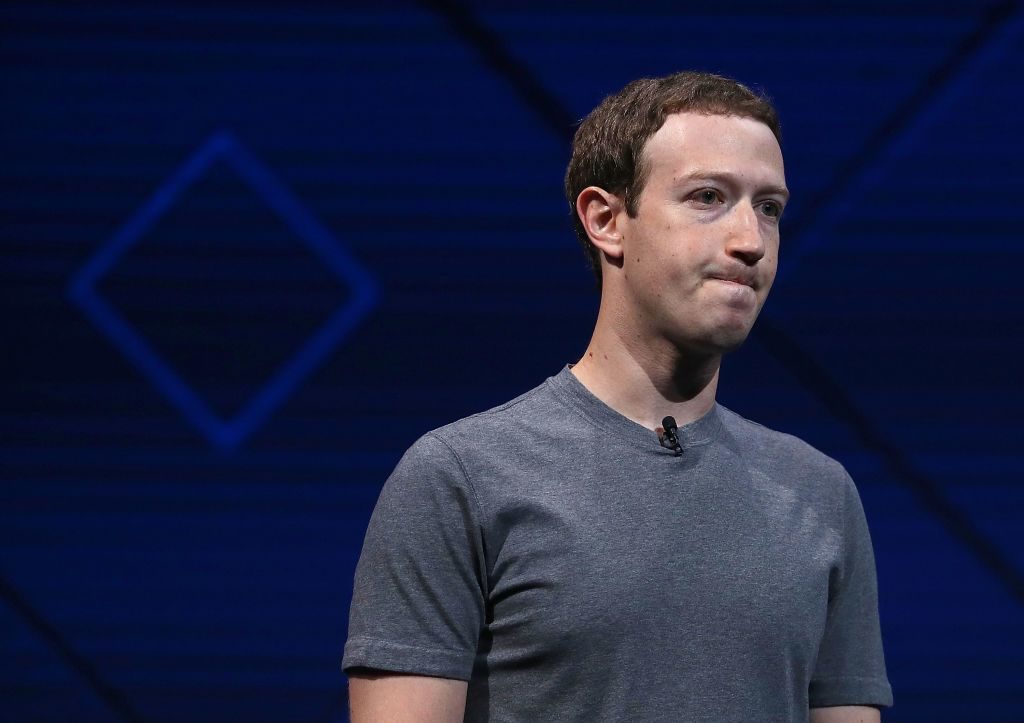 Government regulation has long been anathema to corporate America, but not so much that it has stopped a chorus of executives in recent months from calling for the regulation of Facebook and other technology behemoths.
Government regulation has long been anathema to corporate America, but not so much that it has stopped a chorus of executives in recent months from calling for the regulation of Facebook and other technology behemoths.
A poll of Fortune 500 CEOs revealed that despite their concerns about the regulation of their own companies, 50 percent of those surveyed felt Facebook needed to be regulated. They recommended the same for Amazon (41 percent) and Google’s parent company Alphabet (39 percent).
What makes Facebook different from other corporate giants like Wal-Mart or ExxonMobil? Facebook’s history of failure, for one. It has tallied volumes of complaints about inadequate consumer protections and being slow to police intrusions on its platform. It is already facing a fine of as much as $5 billion from the Federal Trade Commission over privacy violations.
Secondly, the sheer size of the company has many people worried. Like Google’s Alphabet, these tech conglomerates dominate their fields and press deeply into other sectors. Yes, they face much competition, but they are remarkably powerful and influential in terms of their reach and scope in the marketplace.
Being big isn’t automatically bad, but business critics feel the company is unaccountable. The only way to punish poor management is to break up Facebook or stop it from expanding. It was a message one of its founders echoed when he urged Facebook’s CEO Mark Zuckerberg to spin off some of its holdings, particularly social networking applications Instagram and WhatsApp.
“Because Facebook so dominates social networking, it faces no market-based accountability,” wrote Chris Hughes, Facebook’s co-founder, in an op-ed for The New York Times. “This means that every time Facebook messes up, we repeat an exhausting pattern: first outrage, then disappointment, and finally, resignation.”
Even Facebook believes it needs to be governed—or at least the Internet does. Zuckerberg asked Congress to consider regulation to address four key areas—user privacy, data portability, election integrity and what to do with harmful content. All of these issues have been the focus of intense criticism and congressional hearings in the last two years.
“Facebook accepts that with success comes accountability. But you don’t enforce accountability by calling for the breakup of a successful American company,” Nick Clegg, Facebook’s vice president of global affairs and communications, said in a statement. “Accountability of tech companies can only be achieved through the painstaking introduction of new rules for the Internet.”
Big business has generally had an adverse relationship with government regulation, but not always. The supremacy of mega-corporations usually gives them an advantage in dealing with regulations, whereas their upstart competitors can be easily hobbled by government rules. Regulation is just part of doing business.
In that sense, regulating Facebook, Google or Amazon might be good for the business community. The three have a stranglehold over the marketplace, and they continue to grow stronger by the day. That imbalance may make loathed government regulation a better option than trying to fight their inevitable and steady growth. More importantly, it might halt their encroachment into other sectors in the future.
Ironically, U.S. antitrust laws, developed in the 1800s, may be the best answer to tech’s rapid and unchecked development. New rules addressing their acquisitions and how they handle activities on their sites may ensure balance in the economy and adequately protect consumers from Facebook and from themselves.
Read more: Facebook Is Exhibit A In The Case Against Dual-Class Shares

Chief Executive Group exists to improve the performance of U.S. CEOs, senior executives and public-company directors, helping you grow your companies, build your communities and strengthen society. Learn more at chiefexecutivegroup.com.
0

1:00 - 5:00 pm
Over 70% of Executives Surveyed Agree: Many Strategic Planning Efforts Lack Systematic Approach Tips for Enhancing Your Strategic Planning Process
Executives expressed frustration with their current strategic planning process. Issues include:
Steve Rutan and Denise Harrison have put together an afternoon workshop that will provide the tools you need to address these concerns. They have worked with hundreds of executives to develop a systematic approach that will enable your team to make better decisions during strategic planning. Steve and Denise will walk you through exercises for prioritizing your lists and steps that will reset and reinvigorate your process. This will be a hands-on workshop that will enable you to think about your business as you use the tools that are being presented. If you are ready for a Strategic Planning tune-up, select this workshop in your registration form. The additional fee of $695 will be added to your total.

2:00 - 5:00 pm
Female leaders face the same issues all leaders do, but they often face additional challenges too. In this peer session, we will facilitate a discussion of best practices and how to overcome common barriers to help women leaders be more effective within and outside their organizations.
Limited space available.

10:30 - 5:00 pm
General’s Retreat at Hermitage Golf Course
Sponsored by UBS
General’s Retreat, built in 1986 with architect Gary Roger Baird, has been voted the “Best Golf Course in Nashville” and is a “must play” when visiting the Nashville, Tennessee area. With the beautiful setting along the Cumberland River, golfers of all capabilities will thoroughly enjoy the golf, scenery and hospitality.
The golf outing fee includes transportation to and from the hotel, greens/cart fees, use of practice facilities, and boxed lunch. The bus will leave the hotel at 10:30 am for a noon shotgun start and return to the hotel after the cocktail reception following the completion of the round.